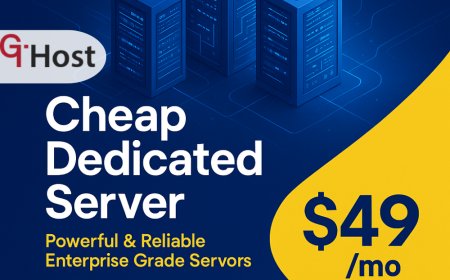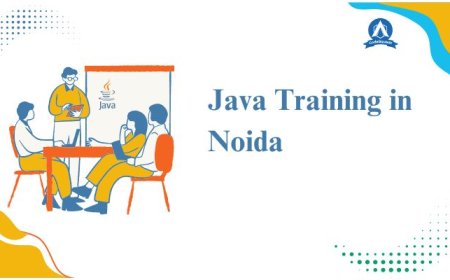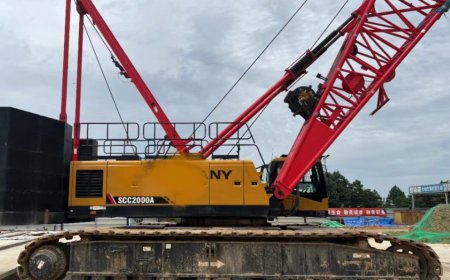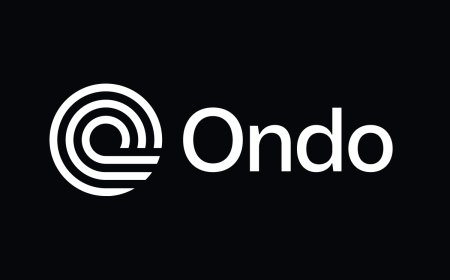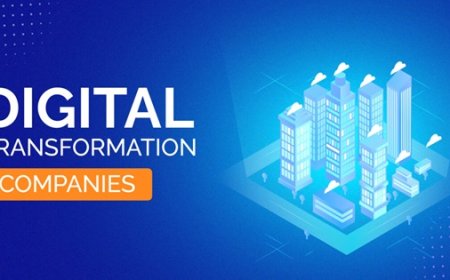How DevSecOps Revolutionizes Cloud Security Today?
Learn how DevSecOps revolutionizes cloud security today with integrated protection, continuous monitoring, and proactive threat detection and response.
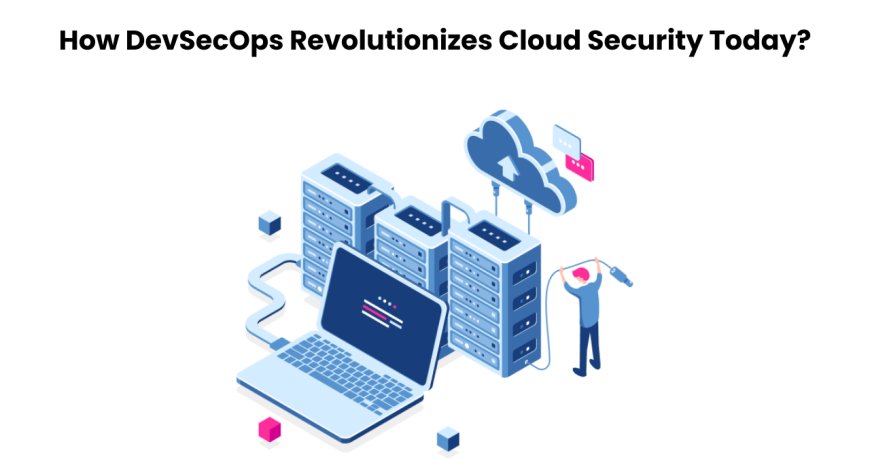
Introduction
The world of technology is moving at lightning speed, and businesses are relying more on the cloud to run applications, store data, and deliver services. While cloud platforms offer flexibility and scalability, they also come with new and more complex security challenges. Traditional methods of securing systems are no longer enough. Thats where DevSecOps steps in and completely transforms the way cloud security is handled today.
DevSecOps combines development, security, and operations into one streamlined process. Its not just a buzzwordits a cultural and technical shift that embeds security directly into the development lifecycle, allowing teams to build faster while staying secure. In this blog, well explore how DevSecOps is revolutionizing cloud security, what makes it different from old-school practices, and why its the go-to approach for modern businesses.
What is DevSecOps?
A Modern Approach to Software Development and Security
DevSecOps stands for Development, Security, and Operations. Its a method that ensures security is part of every stage of the software development processnot just an afterthought. Instead of waiting until the end to add security checks, DevSecOps involves everyone in the team, from developers to system admins, in securing the application from day one.
This proactive strategy improves visibility, reduces vulnerabilities, and creates a more secure environment without slowing down development. With cloud services becoming the backbone of operations, integrating security early and continuously has never been more critical.
How DevSecOps Evolved from DevOps
DevOps was originally introduced to break down the silos between development and operations teams. It enabled faster releases and better collaboration. But there was one piece missingsecurity. DevSecOps adds that layer, making sure that the entire pipeline, from code writing to deployment in the cloud, includes security checks, risk assessments, and compliance measures.
Why Traditional Security Falls Short in the Cloud
Slow and Reactive
Traditional security practices often follow a reactive model. Security teams step in after the development is completed to conduct audits, review the application, and look for vulnerabilities. This approach causes delays, increases costs, and often results in missing important security flaws that could have been addressed earlier.
Not Designed for Cloud Environments
Cloud platforms operate in real time. Infrastructure is dynamic, scalable, and ever-changing. Old methods that rely on fixed networks and manual reviews just dont work effectively in a cloud-first world. Security needs to be just as agile and automated as the development process.
Increased Threat Landscape
With more data in the cloud, more devices connected to the network, and more remote users accessing services, the risk of cyberattacks is greater than ever. Hackers are more sophisticated, and security teams need smarter tools and processes to stay ahead.
How DevSecOps Revolutionizes Cloud Security
1. Security is Baked into the Development Process
One of the biggest game-changers with DevSecOps is that security is no longer a final checkpoint. Its an ongoing part of the development process. Developers run security checks as they write code, allowing them to catch vulnerabilities early and fix them before they go live.
This shift-left strategy means fewer security issues in production and a much faster path to delivery. Automated tools perform tasks like static code analysis, dependency scanning, and configuration checksall while the developers are working.
2. Continuous Monitoring and Real-Time Feedback
With DevSecOps, security doesn't stop once an application is deployed. Monitoring tools continuously scan cloud environments for unusual behavior, unauthorized access, and system misconfigurations. If something suspicious happens, teams are alerted immediately and can take action before it escalates.
This real-time feedback loop ensures cloud applications are always under watch, making it much harder for attackers to exploit vulnerabilities.
3. Automation Makes Security Faster and Smarter
Manual security checks cant keep up with todays fast release cycles. DevSecOps uses automation to integrate security tools into the CI/CD pipeline. These tools automatically scan code, check for policy violations, and even block deployments if major risks are found.
Automation reduces human error, speeds up reviews, and ensures consistency across all stages of development. This means more secure apps, faster releases, and fewer roadblocks for developers.
4. Better Collaboration Between Teams
One of the biggest shifts DevSecOps brings is the culture change. It encourages developers, security experts, and operations teams to work together from the start. When everyone is involved and understands their role in security, communication improves, and so does the overall security posture.
This collaboration leads to smarter design choices, quicker problem resolution, and a shared goal of building secure and efficient applications.
5. Enhanced Compliance and Governance
Compliance regulations like GDPR, HIPAA, and ISO are a big deal, especially in industries like healthcare, finance, and retail. DevSecOps tools can automatically check cloud configurations against compliance standards. They generate reports, flag violations, and ensure your system always stays audit-ready.
This not only reduces the burden on your security teams but also ensures that youre always prepared for external audits and legal requirements.
Key Components of DevSecOps in Cloud Security
Code Security
This involves scanning code for vulnerabilities, outdated libraries, and insecure functions. Developers use tools like SonarQube, Snyk, or Checkmarx to catch issues before the code is deployed.
Cloud Configuration Management
Tools like Terraform and AWS CloudFormation are used to create and manage infrastructure through code. DevSecOps ensures these templates are secure by default, preventing misconfigurations that hackers often exploit.
Secret Management
Sensitive information like passwords, API keys, and database credentials must be handled securely. DevSecOps promotes using tools like HashiCorp Vault or AWS Secrets Manager to store and access secrets safely.
Container and Runtime Security
With cloud-native applications running in containers, DevSecOps tools scan container images for threats and monitor them during runtime. This helps protect microservices and ensures that containers behave as expected.
Incident Response and Threat Intelligence
DevSecOps includes automated alerts and playbooks to guide teams during a breach. It also involves collecting data about new threats and updating defenses accordingly.
Real-World Examples of DevSecOps in Action
A large fintech company integrated DevSecOps into its cloud infrastructure. By using automated code scanners and compliance checkers, it reduced its vulnerability count by 80% in just a few months. Not only did this improve their cloud security, but it also helped them launch features faster and gain customer trust.
Another example is a healthcare platform that moved to the cloud. They adopted DevSecOps strategies to stay HIPAA-compliant. With continuous monitoring and IaC security tools, they minimized the risk of data leaks and improved overall system reliability.
Read more: The Importance of DevSecOps for Effective Cloud Security
Getting Started with DevSecOps in Your Cloud Journey
To begin, start small. Integrate a few security tools into your CI/CD pipeline. Provide training for your developers on secure coding practices. Encourage teams to work together and hold regular security reviews. Over time, expand your toolset, automate more processes, and track your improvements. The goal is to make security seamless and second nature to every team member.
Conclusion
As cloud adoption continues to rise, so do the risks associated with storing and managing data in the cloud. Traditional security models are no longer enough to protect businesses from evolving cyber threats. DevSecOps offers a modern solution that brings speed, efficiency, and security together in one powerful approach.
By embedding security into every phase of the development lifecycle, automating checks, and fostering collaboration between teams, DevSecOps makes cloud environments more secure and resilient. Its not just about toolsits about creating a culture where security is a shared responsibility. The companies that adopt DevSecOps today will be the ones best prepared to face the threats of tomorrow.
Whether youre launching a new product, scaling your infrastructure, or building cloud-native applications, embracing DevSecOps can give you the confidence to move fast without compromising on safety. Just like on demand app development services provide flexibility and speed for businesses looking to stay ahead, DevSecOps offers the same kind of agility and controlonly in the realm of cloud security.
FAQs
What makes DevSecOps different from traditional security models?
DevSecOps integrates security into the entire development and deployment process instead of handling it at the end. It uses automation and team collaboration to improve cloud security without slowing down development.
How does DevSecOps help with cloud compliance?
DevSecOps tools automatically check your systems against compliance standards and generate reports. This helps ensure your cloud environment remains secure and audit-ready.
Can DevSecOps be used in small or mid-sized businesses?
Yes, DevSecOps is scalable. Even small businesses can benefit by using open-source tools, automating basic security checks, and building a strong security culture from the start.
What are some common DevSecOps tools for cloud security?
Tools like SonarQube for code analysis, Terraform for infrastructure as code, HashiCorp Vault for secret management, and AWS GuardDuty for threat detection are commonly used.
Is DevSecOps only useful for developers and security teams?
No, DevSecOps benefits the entire organization. Operations teams, compliance officers, and even product managers can use the insights and automation DevSecOps provides to create safer and more efficient applications.
